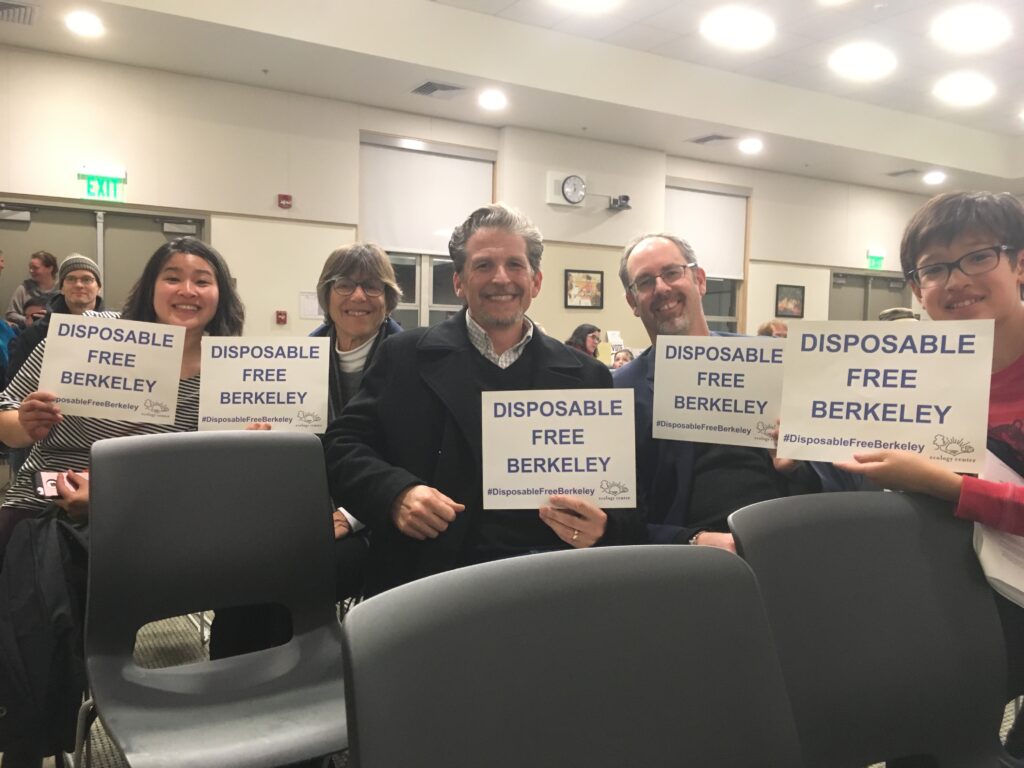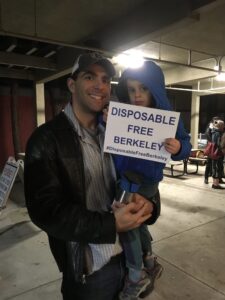
In the US we have been entrenched in a culture of consumption, with little consideration for what waste disposal entails, for decades. In fact, the convenience of disposable products and foodware has long been celebrated; in the 1950s a Time article coined the term “throwaway living,” naming that sentiment. But in recent years, cultural awareness of the impact of our society’s reliance on disposable products has come a long way. This shift is visible in our conversations, media, and policy – from California’s ban on plastic grocery bags to the countless news stories on microplastics. Still, there is a long way to go to create a truly circular economy. Does your community have room to grow in its zero waste efforts?
The Ecology Center has long been a leader in the movement away from a throwaway culture and towards a circular economy, having fought California’s switch from refillable glass bottles to plastic bottles with the state bottle bill in the 1980s. In 2019, we built on this legacy by championing a first-of-its kind policy to reduce disposable foodware, Single Use Foodware and Litter Reduction ordinance. Now, we’re sharing how the Ecology Center, along with an interdisciplinary team of passionate advocates, got it passed.
culture and towards a circular economy, having fought California’s switch from refillable glass bottles to plastic bottles with the state bottle bill in the 1980s. In 2019, we built on this legacy by championing a first-of-its kind policy to reduce disposable foodware, Single Use Foodware and Litter Reduction ordinance. Now, we’re sharing how the Ecology Center, along with an interdisciplinary team of passionate advocates, got it passed.
With more and more individuals, communities, businesses, and even nations taking a stance against single use disposable plastics, we are excited to provide some guidance through the launch of our Disposable Foodware Policy Toolkit. Our hope is that by sharing our theory of change, campaign structure, and media kit, other communities will replicate and iterate on our campaign in order to win similar disposable foodware reduction policy and ultimately move us away from throwaway culture and towards a circular economy.
The toolkit includes:
- How we built a coalition and campaign
- Ordinance language & City Council documents
- Social media & press kits
- Resources to launch your own campaign




I’m concerned to see that nowhere in anything on zero waste or disposable free on your site, does anyone mention disabled communities or access. There’s no mention of collaborating with local disability justice communities or listening to disabled folks on why certain disposable products like straws can be necessary for accessibility. Its really disappointing to see an entire community erased and not considered on an issue that greatly affects us. Especially when the climate crisis disproportionately impacts disabled folks, who are more likely to be from marginalized communities also— and we’re the last considered in disaster scenarios.
Alice Wong has a great essay in her recent book on this issue.
https://www.penguinrandomhouse.com/books/688504/year-of-the-tiger-by-alice-wong/
Hi Jordan, thank you for this comment. It may be a bit tricky to find since the toolkit is pretty lengthy, but there are a few paragraphs on the campaign’s engagement with disabled communities (under the “Challenges Unanticipated and Anticipated” dropdown). Members of the campaign reached out to a number of organizations representing or serving disabled communities and Berkeley’s Commission on Disability spoke about disposable foodware, but without any formal recommendations. Later, leaders in the local disability justice space and Councilmember Hahn were able to agree on including language to recommend that businesses keep plastic straw onsite for those in need through a series of phone calls. That the campaign wasn’t able to more meaningfully involve disabled community members through its duration speaks to our need to learn to better center marginalized communities in this work, as well as the larger issue that many organizations serving or representing disabled communities are under-resourced to get involved with this sort of campaign. We appreciate you sharing resources to help guide us in this work.